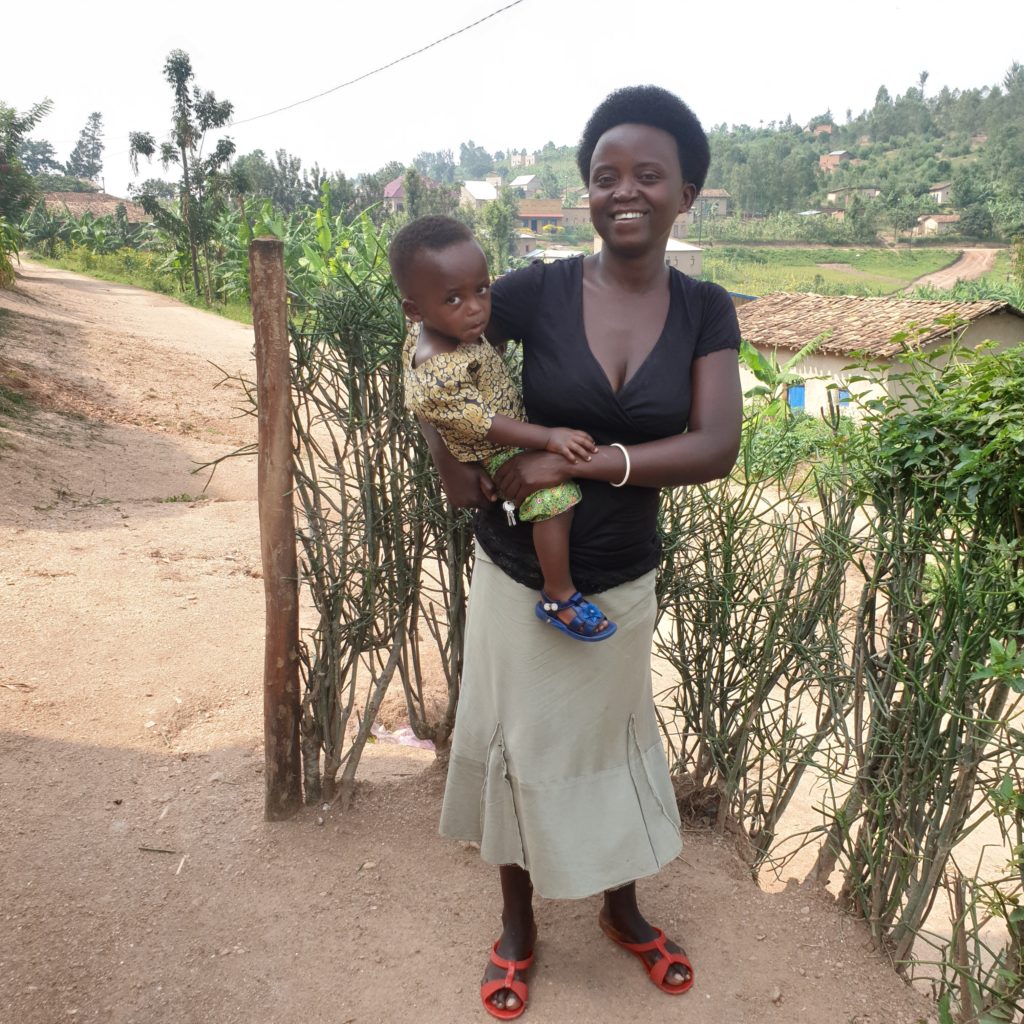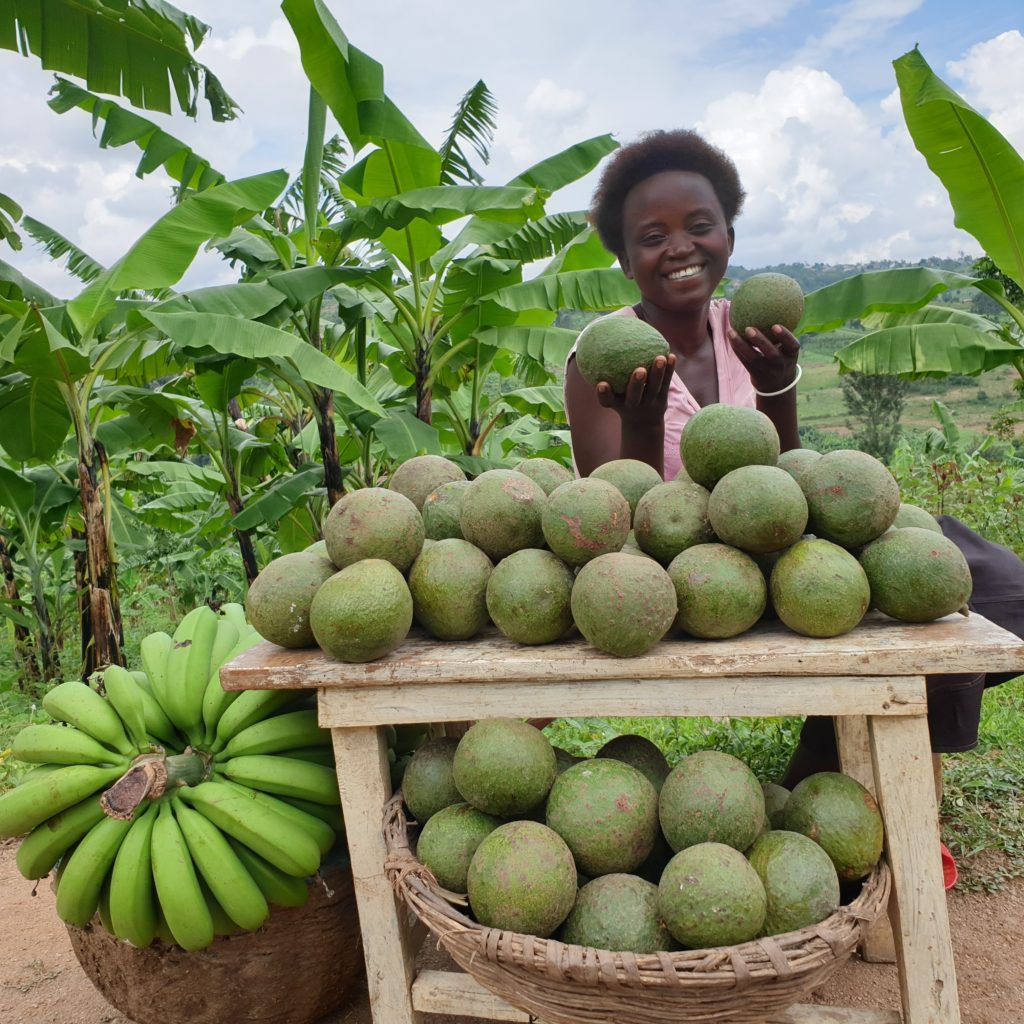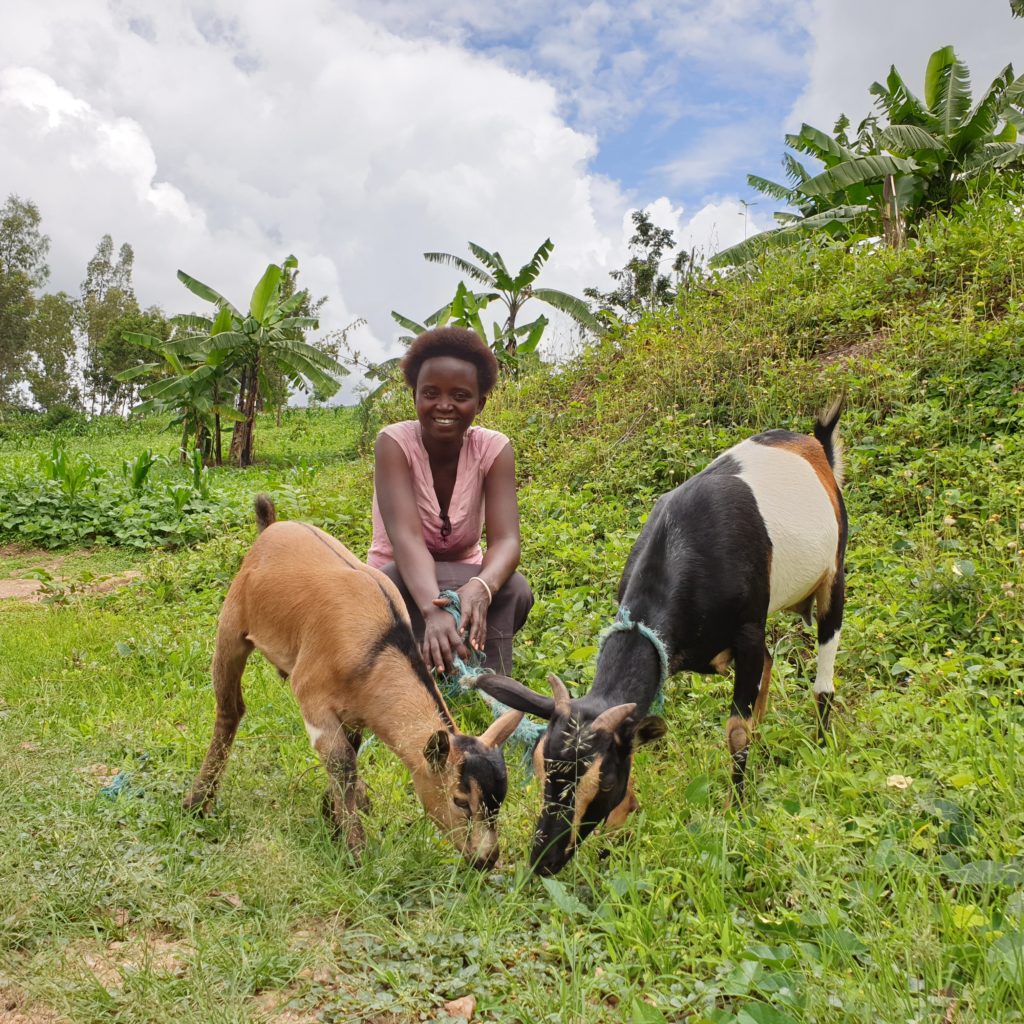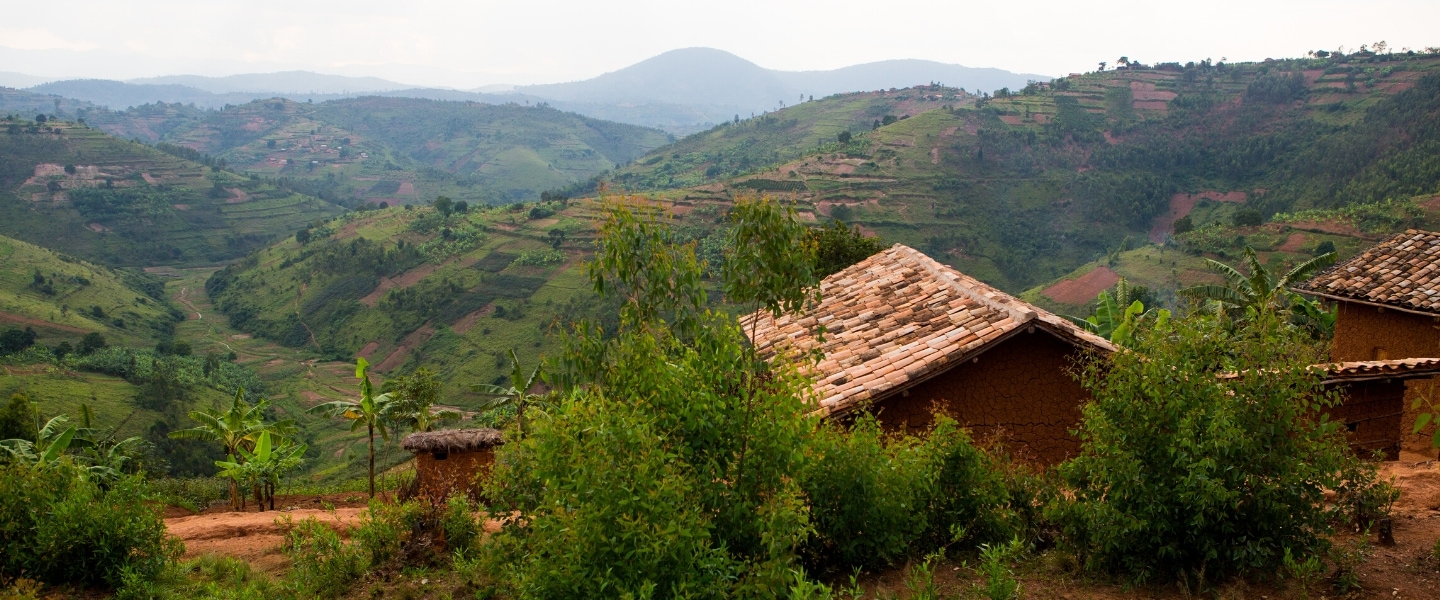After being found on the streets when she was one day old, Esther was taken to an orphanage in the Northern Province of Rwanda, joining the ranks of tens of thousands of other parentless children in the orphanage system across Africa. When she turned 14, Esther moved to another orphanage in the Southern Province where she was admitted to secondary school.
Esther enjoyed school, but after graduation, the orphanage forced her to leave, stating she was too old to stay there. She had no choice but to re-enter the community, without knowledge of where to find a place to live, get food, earn an income and fulfill other basic needs previously provided by the orphanage.
Because Esther wasn’t originally from the community in which she was now living, she was routinely the victim of discrimination and called a stranger and a burden. Not only did she miss her friends and caretakers at the orphanage, but the realization she was ill-equipped to survive on her own pushed her into a state of depression.
Luckily, a kind-hearted woman in the community noticed Esther’s suffering and offered her a place to live. But, the arrangements proved to be temporary when the woman passed away just four months later, leaving Esther alone for a second time. She labored and begged for food, often going without.
Esther’s desperation and vulnerability gave way for a man in her community to abuse her. When Esther became pregnant with his child, he rejected her and all responsibilities associated with the baby.
Recalling this time of hardship, Esther said, “I used to ask God why He made me a tree without roots. I used to live in sorrow and I had a heavy heart, thinking that I wasn’t created the same as other people.”
Esther is not the first child to age out of an orphanage and struggle to thrive in an unfamiliar community. In fact, it is common for children who have spent significant time at an orphanage to fall victim to exploitation or commit criminal acts later on in life. Without adequate vocational training, adult guidance and community connection, these young people believe there is no other choice to survive.
Today, Rwanda has pledged to become the first nation in Africa to be orphanage-free, and is on track to do so by 2022. In Tanzania (Kagera region), the World Bank found that the annual cost for one child in residential care was $1063 per year, more than 11x the cost of the Zoe Empowers program, which produces sustainability in only three years. Providing these children, the ones left behind, with the tools and resources to create a healthy and prosperous life for themselves is a much more sustainable and far-reaching solution to the orphan crisis.
In January 2019, Esther, along with her infant son, Jacques, joined Zoe Empowers Rwanda. Within three months, she was operating her own business selling bananas and avocados, which earned her enough money to feed herself and Jacques regular nutritious meals. She completed training on food security and planted her own garden where she grows beans, sorghum, sweet potato and fruit trees, in addition to rearing two goats.
Now at the halfway point of the Zoe Empowers program, Esther is proud to report she has overcome many challenges: She and her son live in a clean, safe home. She has access to healthcare. She hires community members and pays them a fair wage to help her. She has restored her faith in God.
“Thanks to Zoe, I realized that nothing happened to me without reason because I knew that God had a good plan for my life. That is the reason why I made the decision to pray to God,” Esther said.
Esther says that being able to feed her son and own her business are two of the great accomplishments of her life, both of which give her the ability to be the kind of parent she always wished for.
380 million children are living in life-threatening poverty.
$9 a month can change that.
A monthly gift of $9 over 3 years empowers one orphan out of poverty. How many children like Esther can you give lasting sustainable change?



